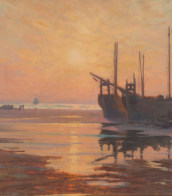chess

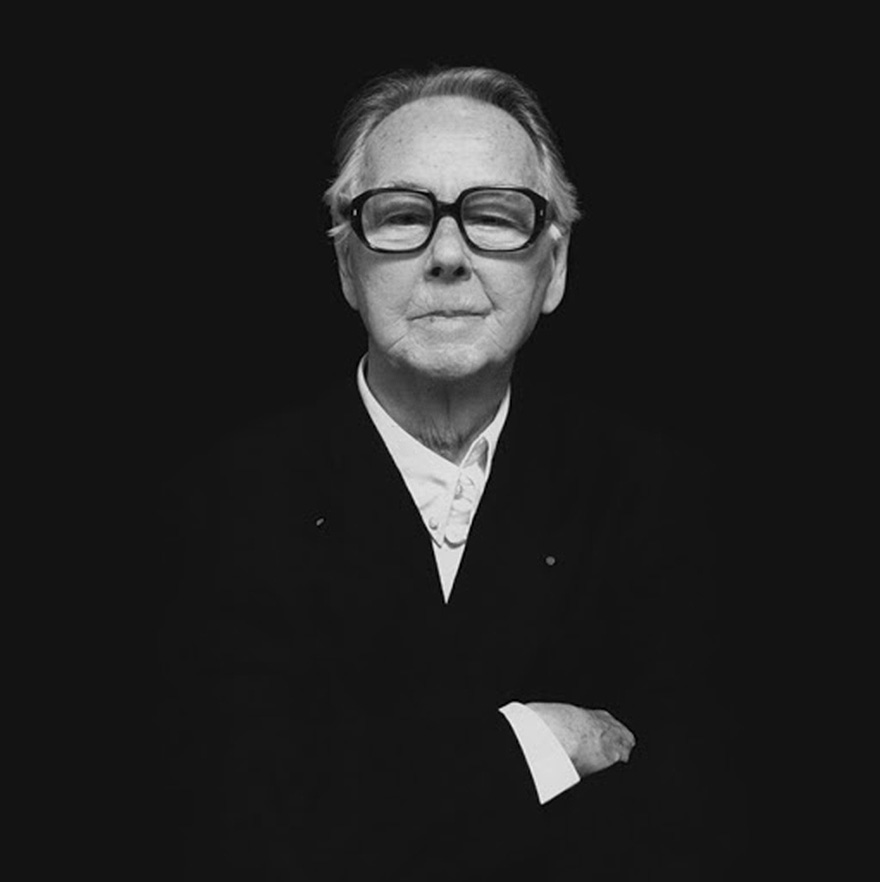
Victor Vasarely, a seminal figure in the Op art movement, was a Hungarian-French artist celebrated for his pioneering contributions to geometric abstract art. Born Győző Vásárhelyi in Pécs, Hungary, in 1906, Vasarely's artistic journey led him to Paris, where he honed a distinctive style marked by optical illusions and kinetic art. By the late 1940s, he had developed his iconic approach, utilizing geometric shapes and a limited color palette to create artworks that seemed to move and vibrate. His work "Zebra," created in 1937, is often cited as one of the earliest examples of Op art, showcasing his fascination with creating the illusion of depth and movement on a flat surface.
Throughout the 1950s and 1960s, Vasarely's exploration into optical effects deepened, leading to significant series like his "Vega" works. These pieces are characterized by their illusionary three-dimensional space, seemingly pushing and pulling the viewer into the canvas. His dedication to optical and geometric abstraction was not just a pursuit of aesthetic innovation but also an exploration of the viewer's perception, making the observer an integral part of the artwork.
Vasarely's influence extended beyond the canvas, impacting architecture, sculpture, and even space exploration. In 1970, he founded the first museum dedicated to his works in Gordes, followed by the establishment of the Fondation Vasarely in Aix-en-Provence in 1976, showcasing his vision of integrating art with the environment. His artworks have found homes in prestigious institutions like the Museum of Modern Art and have been celebrated in exhibitions worldwide.
For collectors and experts in art and antiques, Vasarely's works offer a mesmerizing blend of scientific precision and artistic expression, encapsulating a moment in art history where the boundaries between viewer and artwork blurred. His legacy is a testament to the power of visual perception and the endless possibilities of abstract art.
For those interested in delving deeper into Victor Vasarely's visionary world and perhaps acquiring a piece of this history, signing up for updates on new product sales and auction events related to Vasarely's works is highly recommended. Stay informed and embrace the opportunity to own a part of the optical and geometric abstraction movement that Vasarely so brilliantly pioneered.
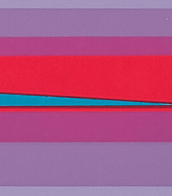
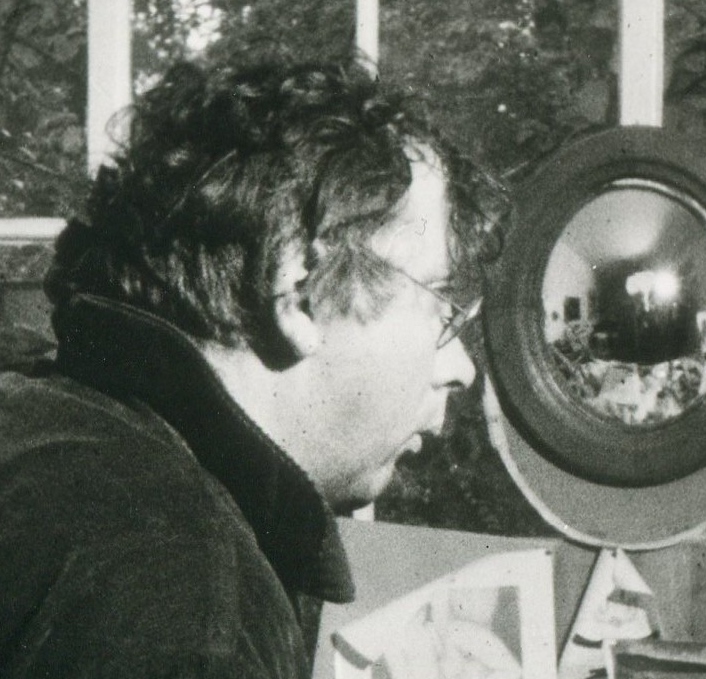
Horst Janssen was a German graphic artist, printmaker, poster and illustrator. He created many drawings, etchings, woodcuts, lithographs, and woodcuts.
There is a museum dedicated to his legacy in Horst Janssen's hometown of Oldenburg. His works are represented internationally in major museums.
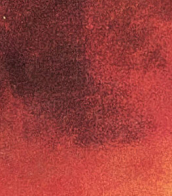
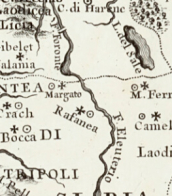
.jpg)
Jacint Rigau-Ros i Serra, known in French as Hyacinthe Rigaud, was a Catalan-French baroque painter most famous for his portraits of Louis XIV and other members of the French nobility.
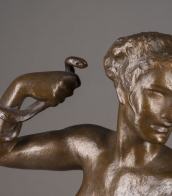
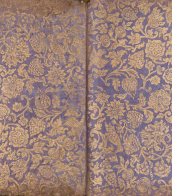

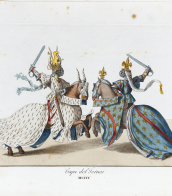
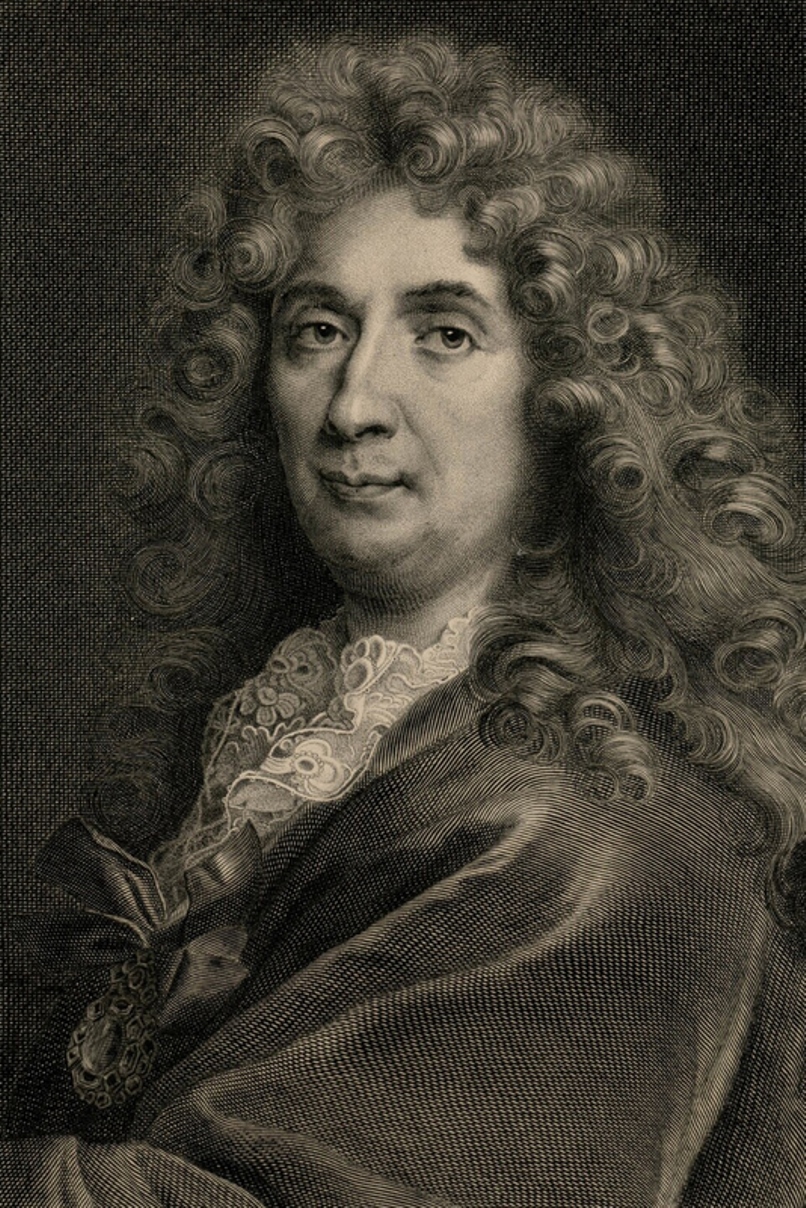
Charles Le Brun was a French painter, draftsman and chief decorator of the Palace of Versailles.
Charles came from an educated and respected family, trained in painting in Italy and very soon his talents were appreciated in the highest circles of France. In 1660 Le Brun painted "The Family of Darius before Alexander", which brought him the reputation of a brilliant French painter, and in 1664 he received the position of the first painter of the king. Thereafter he received more and more commissions and more honors.
From 1662 Le Brun controlled all the artistic projects of the royal court. In the Palace of Versailles, Lebrun created beautiful decorations: the Ambassadors' Staircase, the Hall of Mirrors, the Peace Room and the War Room. In each of his designs, he emphasized the king's achievements. He was also responsible for the decoration of the State Apartments, which was entrusted to the greatest artists of the time, who worked from his drawings. Le Brun also designed most of the statues in the park at Versailles. This enormous work cemented his reputation as a true seventeenth-century genius, as well as one of the founders, ideologues, and chief representatives of the classicist "grand style" of King Louis XIV's era.
In 1648 Le Brun became a founding member of the Royal Academy of Painting and Sculpture, and in 1663 - the manager of the Manufacture of tapestries.
Charles Le Brun was not only the creator of the "grand style", but also contributed to the rebirth of classicism into academism.
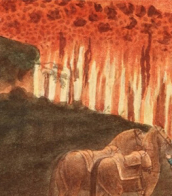
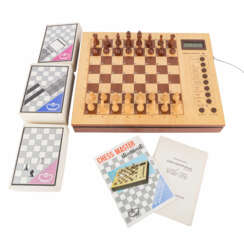


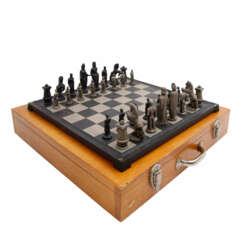

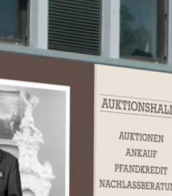
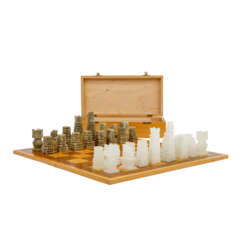

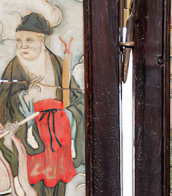





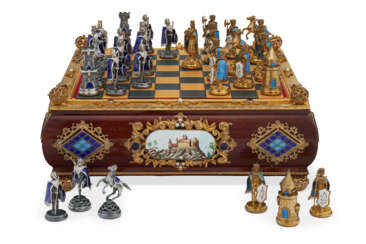

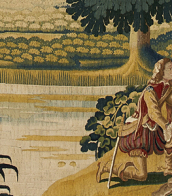
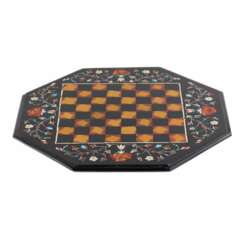


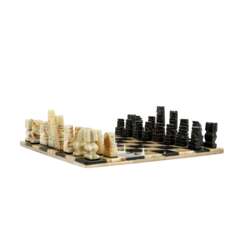

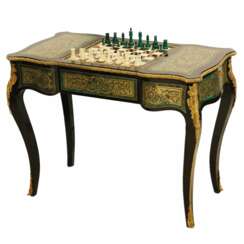



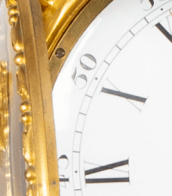
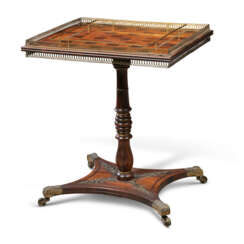

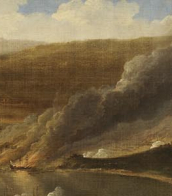
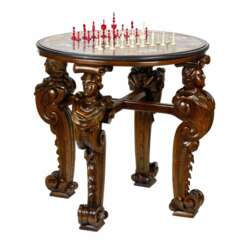

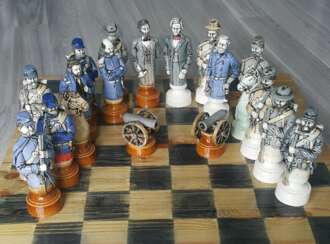



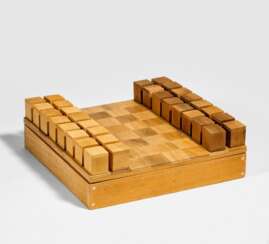

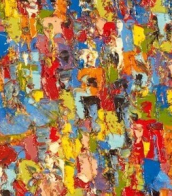


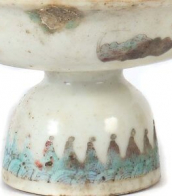
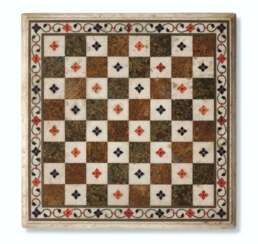

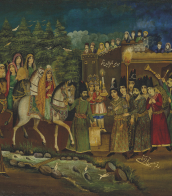
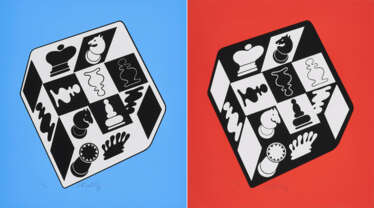

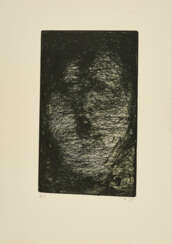

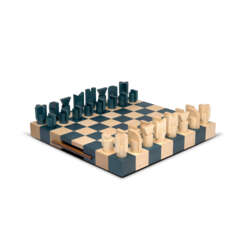


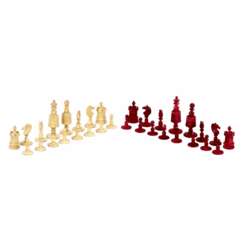

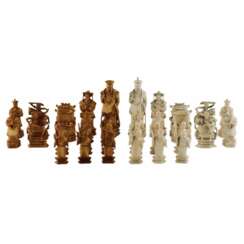

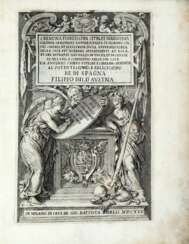

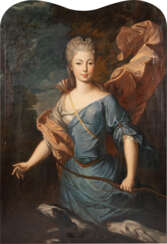

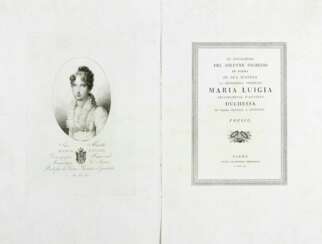

![[PARMA] - PACIAUDI, Paolo Maria Paciaudi (1710-1785) - Descrizione delle feste celebrate in Parma l'anno 1769. Per le auguste nozze di sua altezza reale l'infante Don Ferdinando colla reale arciduchessa Maria Amalia. Parma: Giambattista Bodoni, [1769].](/assets/image/picture_1242120/53894/8-donz4q7whl2byun7qhp5k8feaaetqjqvruztoagotvwg7oaowqo5xmhtyfe-1608650265jpg__fix_374_244.jpeg)
![[PARMA] - PACIAUDI, Paolo Maria Paciaudi (1710-1785) - Descrizione delle feste celebrate in Parma l'anno 1769. Per le auguste nozze di sua altezza reale l'infante Don Ferdinando colla reale arciduchessa Maria Amalia. Parma: Giambattista Bodoni, [1769].](https://veryimportantlot.com/assets/image/picture_1242120/53894/8-donz4q7whl2byun7qhp5k8feaaetqjqvruztoagotvwg7oaowqo5xmhtyfe-1608650265jpg__fix_374_244.jpeg)


![Charles Le Brun | Grand escalier du chateau de Versailles. Paris, [1725], from the library of the Duchesse de Berry](/assets/image/picture_3553008/ec9f0/uetj65gqqo2ruc9jwwadbwuz3io4pimo93nkrxgxopcbddyau3e7vp6zhjxxem1699092113jpg__fix_374_244.jpeg)
![Charles Le Brun | Grand escalier du chateau de Versailles. Paris, [1725], from the library of the Duchesse de Berry](https://veryimportantlot.com/assets/image/picture_3553008/ec9f0/uetj65gqqo2ruc9jwwadbwuz3io4pimo93nkrxgxopcbddyau3e7vp6zhjxxem1699092113jpg__fix_374_244.jpeg)


